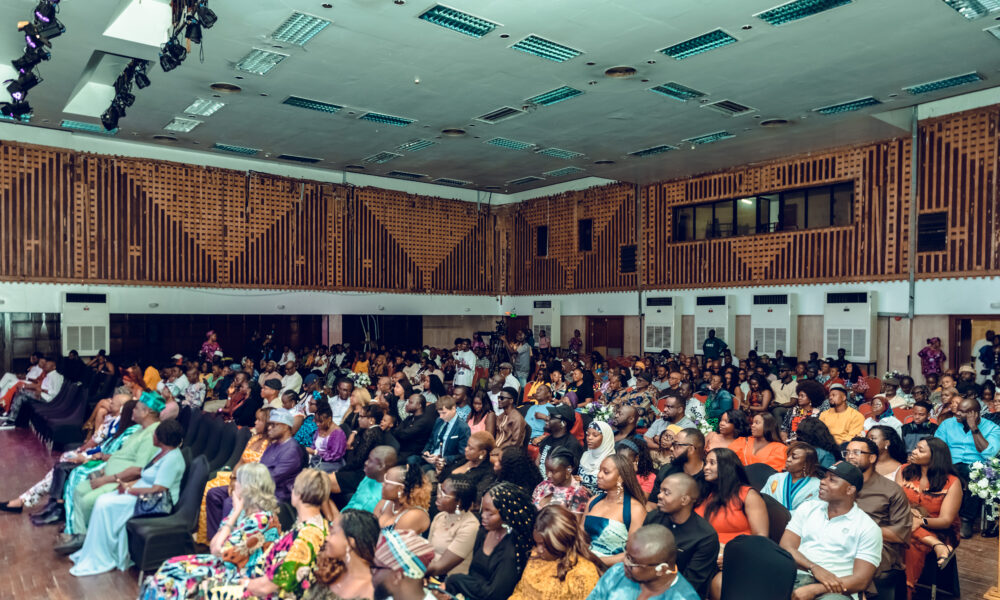Crisis Alert: Liberia's Tourism Dreams Threatened by Visa Hurdles and Neglected Landmarks!
Against the backdrop of Monrovia's evening sky, artist Saah John meticulously paints scenes of Liberia's profound history, a narrative woven with threads of liberation and loss. While his culturally rich artworks predominantly find homes abroad, purchased by expatriates who grasp their historical significance, John and fellow artists now hold a tempered hope. This optimism stems from the establishment of the Liberian Tourism Authority, an initiative by the Boakai administration, which views cultural tourism as a vital pillar for economic diversification and national identity under its ARREST Agenda.
Liberia possesses what tourism experts term a "narrative advantage," a unique historical foundation that inherently markets itself. As the only African nation founded by freeborn and formerly enslaved individuals from the United States and other regions, it embodies a complex and singular chapter in human history. Cultural historian Emmanuel Dolo emphasizes that this legacy positions Liberia as the sole African nation directly connected to the African diaspora's struggle for emancipation, serving as a "living bridge between continents" that tells a story of both freedom and contradiction. Beyond its historical depth, Liberia boasts natural allure, including surf-friendly beaches regarded as among Africa's finest, and lush rainforests teeming with some of the world's rarest birds and unique pygmy hippopotamuses. Such potential was recognized globally when Lonely Planet named Liberia among its top ten destinations in 2019, praising its vibrant spirit, friendly populace, and rich blend of American and West African roots, despite its tumultuous past.
However, translating this vast potential into a thriving industry has proven elusive for successive postwar Liberian governments. The Sirleaf administration in 2016 first declared tourism a national priority, yet progress remained slow. Later, in 2022, President Weah's government, with International Trade Centre support, launched Liberia's inaugural tourism brand and marketing strategy, with ambitious goals of 80,000 visitors, 2,000 new jobs, and US$120 million in foreign exchange by 2025. This strategy branded Liberia as West Africa's prime destination for nature, culture, and water sports, encapsulated by "the freedom to discover" and "Liberia: Amazing Discoveries." Regrettably, this promising vision largely failed to materialize beyond its initial fanfare.
Three years on, the Boakai administration has taken a more concrete step by creating a standalone tourism authority. This new body aims to develop 15 eco-tourism sites across the country and boost domestic tourism by 10% over the next four years, with a broader vision of developing all 15 eco-tourism sites by 2030 and generating US$1 billion in revenue. Chris Onanuga, the presidential envoy for tourism, acknowledges the challenges but asserts that "tourism has to start somewhere," defending the government's approach to build the structure now rather than waiting for ideal conditions. He points to the recent rollout of an e-visa system and airport upgrades as evidence of commitment to modernizing travel infrastructure.
Despite these efforts, significant critiques and obstacles persist. Dr. Toga McIntosh, a former foreign minister, argues that tourism growth requires trained personnel and a clear roadmap, suggesting that the Boakai administration's focus on site development before infrastructure and human capacity is misplaced. Tour operators find the e-visa system cumbersome, frequently necessitating multiple trips to the Liberia Immigration Office, which, coupled with the absence of visas on arrival, deters spontaneous travel. The 2024 Africa Visa Openness Index places Liberia among the most restrictive nations for travelers, a stark contrast to neighboring West African countries that have eased visa rules. Tourism analyst Denise Morris of Liberia Discoveries Enterprise contends that Liberia's current visa policy is "self-defeating," actively discouraging potential visitors and undermining industry growth. She emphasizes the direct correlation between visa openness and tourism success.
Beyond visa policies, Momodu Konneh, another fine artist, highlights the critical issue of infrastructure, specifically the country's poor road networks. With only about 10% of Liberia's roads paved, many routes to potential tourism sites become impassable during the rainy season, posing the single largest barrier to the nation's tourism ambitions. Furthermore, Liberia's rich cultural heritage is visibly eroding due to neglected landmarks. The National Museum, once a grand showcase of Liberia's founding story, is now a poorly maintained shadow of its former self. The historic home of Joseph Jenkins Roberts, Africa's first democratically elected president, now serves as the headquarters for the Liberia Bar Association, its historical significance largely forgotten. Most emblematic of this neglect is the Beh Sao Cultural Village, established to preserve the legacy of King Ngola, which now lies in crumbling ruins.
Both Ms. Morris and cultural historian Emmanuel Dolo advocate for prioritizing the restoration of these historic landmarks. They argue that domestic cultural sites form the credible foundation for international marketing, and their neglect sends a negative message to tourists. Dolo even suggests the government should reclaim Roberts' home for restoration. As artists like Saah John continue their work, hoping for a brighter future, the success of the Liberian Tourism Authority hinges not just on institutional development and policy reform, but crucially, on a fundamental shift in how the country values and preserves its invaluable cultural heritage. The question remains whether this latest effort can truly transform Liberia's immense tourism potential into an enduring economic reality.
You may also like...
Super Eagles Narrow Escape: Cracked Windscreen Forces Terrifying Emergency Landing Mid-Flight
)
The Super Eagles' travel to Uyo for their vital World Cup qualifier against Benin Republic has been delayed after their ...
Chelsea & Liverpool Legends Brawl: Diego Costa's Wild Foul Steals Show, Mikel Obi Shines

In a captivating Chelsea vs. Liverpool Legends charity match at Stamford Bridge, Ryan Babel scored a late winner for Liv...
Spidey-Verse Expands! 'Your Friendly Neighborhood Spider-Man' S2 Drops Fall 2026, Unveiling Venom & Gwen Stacy!

Marvel Animation announced that “Your Friendly Neighborhood Spider-Man” Season 2 will launch on Disney+ in fall 2026. Th...
Bloody Brawls & Fan Favorites Return! 'Daredevil: Born Again' Season 2 Footage Shocks MCU Fans

The highly anticipated second season of <em>Daredevil: Born Again</em> is set to premiere on Disney+ in March 2026, brin...
Questlove Accepts Peabody Trailblazer Award, Declares 'Joy Is Rebellion'

Ahmir “Questlove” Thompson was honored with the 2025 Peabody Trailblazer Award for his impactful storytelling and advoca...
Tragic Loss: Argentine Singer Fede Dorcaz Fatally Shot Before TV Debut

Argentine singer, actor, and model Fede Dorcaz, 29, was fatally shot in Mexico City in what authorities suspect was an a...
Strictly Sensation: Tess Daly Wows in Stunning One-Shoulder Dress

Strictly Come Dancing presenter Tess Daly made a stylish impression in a Karen Millen one-shoulder ruched maxi dress, in...
Literary Star Shines Bright: Oyin Olugbile Bags $100k Nigeria Prize!

Oyin Olugbile has been named the winner of the 2025 Nigeria Prize for Literature for her debut novel, “Sanya.” This pres...



)
:max_bytes(150000):strip_icc()/TAL-NEW-header-exterior-wilderness-bisate-reserve-WLDRNSBISATE1024-fb5db842761b43ffb61cecf7113bec7c.jpg)